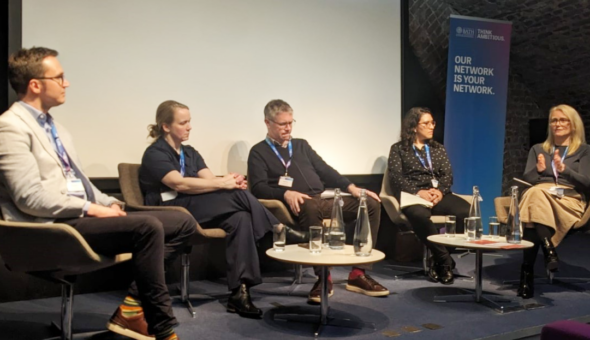New research suggests that firms with a good reputation for ethical sourcing in the fashion industry are judged more harshly than their peers when child labour is discovered in their supply chain. Meggan Caddey, a final year PhD student, and Johanne Grosvold and Stephen Pavelin, all from the Centre for Business, Organisations and Society at the University of Bath, explain their findings.
Child labour remains a major societal challenge. The International Labour Organization (ILO) estimates that 168 million children are involved in child labour today, which the United Nations (UN) defines as “work for which the child is either too young – work done below the required minimum age – or work which, because of its detrimental nature or conditions, is altogether considered unacceptable for children and is prohibited”. Many of these children work in the garment and fashion apparel industry.
The drive for child labour
According to the organisation Stop Child Labour, fast fashion has resulted in high demand for children who are willing to work for very low pay and in dangerous conditions. Some have suggested that their employment is tantamount to modern day slavery. Some of our best known high street brands including Adidas, H&M and Nike have relied on manufacturers who have subsequently been exposed as using children to work in unsafe conditions.
Increasingly, global firms are recognising that failure to address the challenge of child labour can seriously impact on their corporate reputation. However fashion supply chains are complex, relying on numerous suppliers, sub suppliers and manufacturers. According to H&M’s Head of Sustainability Helena Helmersson, these supply chain networks are so complex that “it is impossible to be in full control”.
Corporate responsibility and corporate reputation
Prior research indicates that, by going above and beyond the basic requirements for fulfilling their corporate social responsibilities, proactive firms can engender goodwill that acts as an insurance against potential damage to their reputation. The theory goes that if news of wrongdoing emerges from the supply chain of such a proactive firm, its reputation will suffer less because people will give it the benefit of the doubt - 'surely, this good firm must not be to blame'. Other firms that have no such record of exemplary behaviour would be more readily blamed and, as a result, their reputations would suffer more. According to this theory, H&M would suffer less of a reputational impact if child labour was uncovered in its supply chain, as it is now working strategically to become the most ethical fashion chain on the high street. We set out to test this theory in relation to supply chains in the apparel industry.
Research findings
Our study used an experimental vignette method. This involved presenting study participants with carefully constructed, lifelike scenarios, to evaluate their attitudes, opinions and views of a firm’s actions regarding child labour in the fashion supply chain. Over 800 participants took part in our study, and our initial results are surprising. We found that a firm that had taken steps to address child labour and unsafe working conditions in its supply chain enjoyed a better reputation than a firm that had not. However, when something went wrong, people judged these firms more harshly than they did the firms that had previously behaved less responsibly. So, while firms that are more socially responsible tend to benefit from an improved reputation, such goodwill is accompanied by greater reputational risks - specifically, such a firm experiences greater harm to its reputation if unsafe labour practices are subsequently discovered in its supply chain.
Our findings imply that it is in firms’ interests to address unsafe practices in their supply chains, as doing so results in a better corporate reputation. However, our results also suggest that steps taken to stamp out child labour and poor working conditions tend to strengthen the imperative for a firm to maintain a consistent commitment to responsible sourcing. If they don’t, they risk particularly stringent reputational punishment. In effect, this can create something of a virtuous cycle, which gives momentum to firm's steps towards stamping out child labour and unsafe working conditions. Careful reputation management implies that firms setting high standards must continue to live up to them.
The business case for doing good
There is an increased policy emphasis from both governments and NGOs to reduce the use of child labour and unsafe working conditions in the supply chain. There is also evidence that firms are increasingly taking the problem of child labour seriously, with some estimates suggesting that reliance on child labour was reduced by 30% from 2002-2012. As our research shows, tackling this issue can bring benefits for both children and firms.
We provide distinctive new evidence that guides us towards a more detailed understanding of the business case for being good and doing good. By illustrating the reputational benefits of sustainable supply chain practices, our research findings can help motivate firms not already on board, and inspire those who have already taken action to sustain and expand their efforts. This may in turn encourage them to sign up to independent initiatives such as GoodWeave, which awards companies the right to carry the GoodWeave label if they can show that no child labour or bonded labour was used in the production of their goods. With 11% of the world’s children still sacrificing school in order to work, this is no time for business to be complacent.
Image by Zoriah
Responses




Thank you for this article. I've shared it on my
own Twitter account. I hope, some of my friends and family will pay you a visit ....
not personally 🙂